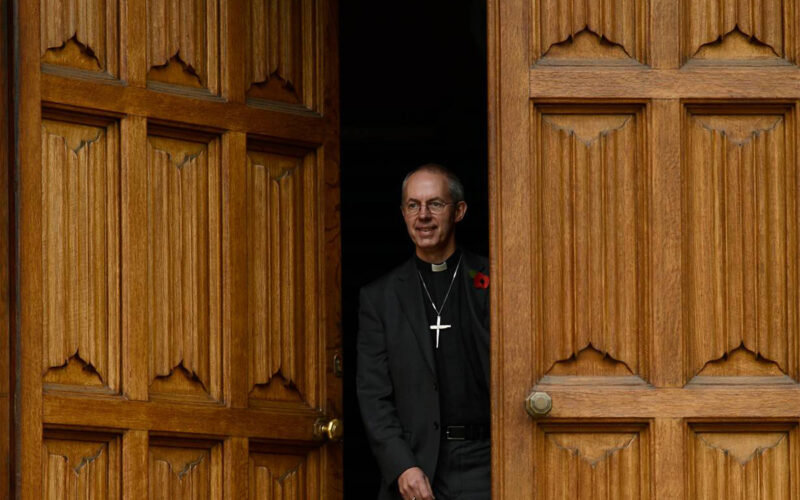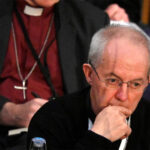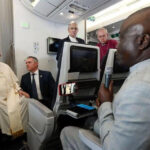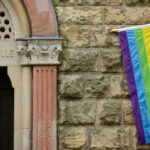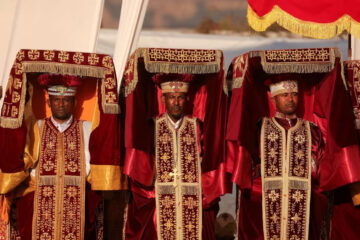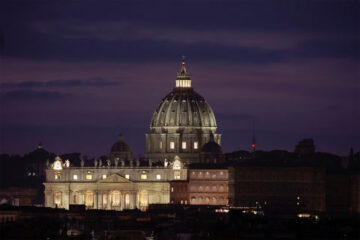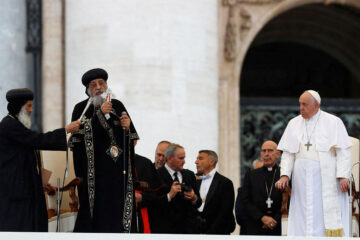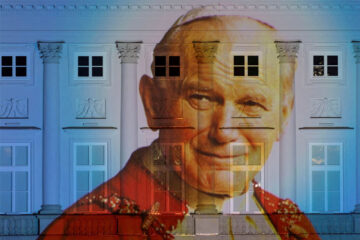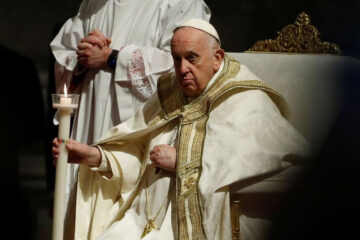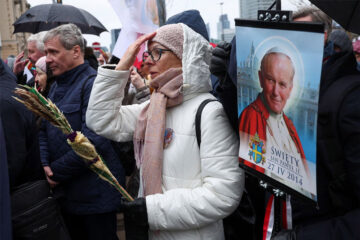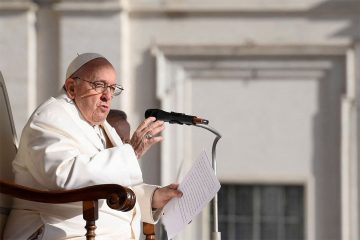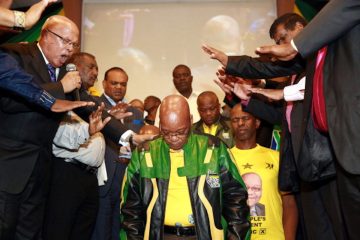HUGO GREENHALGH
THE Anglican Church has seen a simmering row over same-sex marriage erupt as leaders gathered for the Lambeth Conference, a roughly once-in-a-decade meeting of its bishops from around the world.
At the heart of the matter is a 1998 resolution known as Lambeth 1.10 that states marriage can only be between a man and a woman.
An initial statement in the programme for debate at this year’s conference said “same-gender marriage is not permissible”, re-opening painful divisions within the 85-million-strong global Anglican Communion on the issue.
A subsequent updated version that noted stances vary within the church and that some provinces do allow same-sex unions failed to defuse tensions.
The Archbishop of Canterbury Justin Welby said on Tuesday that Lambeth 1.10, which also says that gay sex is sinful, was “not in doubt” but indicated churches that already allow gay marriages would not be penalised.
Here is all the key information:
What does Lambeth 1.10 say?
In 1998, the conference made a resolution that rejected “homosexual practice as incompatible with Scripture”, and stated that marriage is “between a man and a woman”.
It called on the Church to “work to end any discrimination on the basis of sexual orientation and to oppose homophobia” but outlawed same-sex marriage and the blessing of these unions.
Some countries have bypassed the official guidelines. Canada, Brazil, South Africa, the United States and New Zealand allow same-sex couples to marry in Anglican churches and for ministers to bless the unions.
However, the Church of England bans ministers from conducting the ceremonies.
How did the 2022 Lambeth Conference impact the church’s stance?
Archbishop Justin Welby reaffirmed the church’s commitment to Lambeth 1.10 on Tuesday.
However, he added that “we have a plurality of views”, tacitly indicating there would be no official sanctions against Anglican churches that allow same-sex marriages.
Bishops later discussed the issue at a closed-door meeting.
Some campaigners worry that the emphasis is on keeping the Anglican Communion together rather than pastoral care for LGBTQ+ members.
In May, conservatives in the United Methodist Church formed a breakaway order after similar rows over same-sex marriage and the ordination of openly gay pastors, raising fears the Anglican Communion could follow suit.
“That danger has been there for a long time,” Kevin Robertson, suffragan bishop of the Diocese of Toronto, who is himself in a same-sex marriage, told the Thomson Reuters Foundation.
What do LGBTQ+ church members and gay rights activists say?
Campaigners expressed their frustration that more progress had not been made.
Leading gay evangelical Christian Jayne Ozanne said the move to recognise some churches’ acceptance of same-sex marriage was a “significant step forward”.
But she said the focus seemed to be more on the unity of the Communion rather than pastoral care for its LGBTQ+ parishioners.
“It’s very clear that they are far more interested in protecting themselves and their institution than they are (about the impact on LGBTQ+ people),” Ozanne said.
Danish-British television presenter Sandi Toksvig was among LGBTQ+ campaigners who criticised the church for its stance.
“The lives of LGBTQ+ people are at stake here,” Toksvig, a lesbian, wrote in an open letter to Welby published on Twitter.
How did liberal members of the Anglican Communion respond?
Almost 170 bishops and archbishops said in a statement that they remained committed to working with other members of the Communion to find a workable compromise.
“We will never shy away from tackling discrimination and prejudice against those of differing sexualities and gender identities,” said the authors, who included the archbishops of Brazil, Canada and Wales.
“Together, we will speak healing and hope to our broken world and look forward to the day when all may feel truly welcomed, valued and affirmed.”
What do the conservatives say?
The heads of the Anglican Church in Uganda, Rwanda and Nigeria boycotted this year’s Lambeth Conference in protest over the issue.
“Human sexuality is not a moral issue to be wrapped in the garment of human rights which allows for distortion of fundamental biblical truth,” said Henry Ndukuba, Laurent Mbanda and Stephen Kaziimba, respectively the leaders of the Anglican Churches of Nigeria, Rwanda and Uganda, in a statement.

